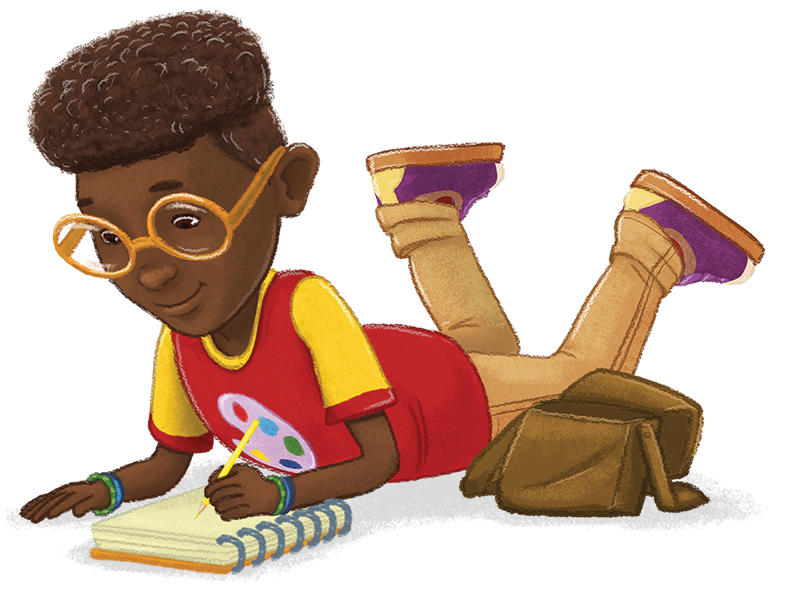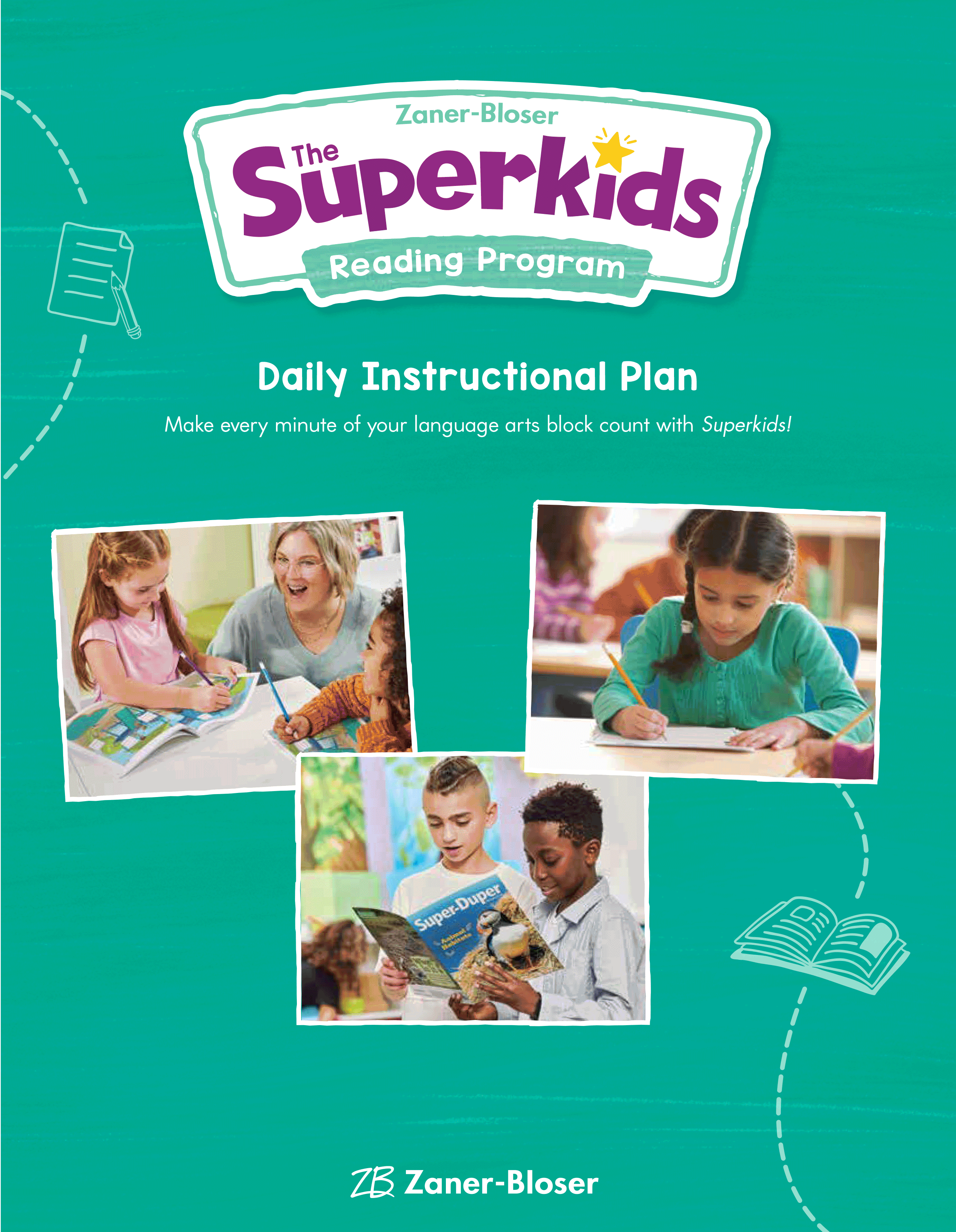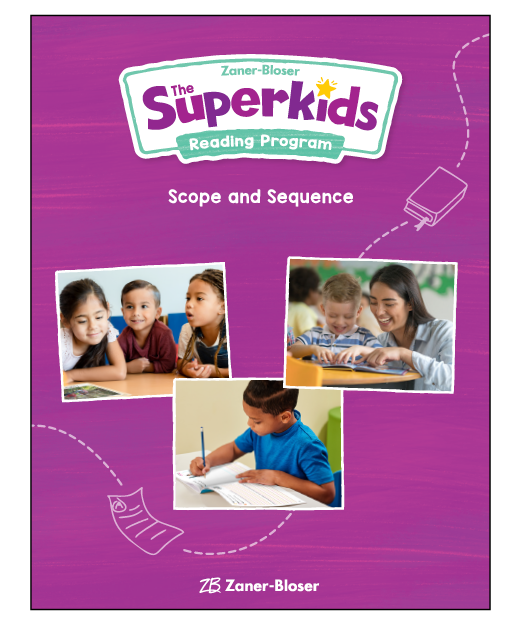
Superkids Instruction is Built to Maximize Outcomes
Superkids is designed to maximize students’ potential and help them become confident, curious readers and writers through an instructional path that solidifies foundational skills, builds knowledge, and lets their imaginations soar.
Instruction in Superkids aligns with decades of scientific research that shows students benefit from instruction in word recognition and language comprehension. The program follows an explicit and systematic instructional path and includes best practices for teaching reading, writing, speaking, and listening. Superkids is built on five evidence-based principles for teaching literacy in grades K–2.
See the Guiding Principles
Daily Instructional Plan
Superkids makes every minute of your language arts block count. Each skill strand informs the others by overlapping and integrating skills, all working together to create a comprehensive, robust English language arts program.
View the instructional time, setting, and materials for grades K–2 in the Daily Instructional Plan.
View Daily Instructional Plan
Systematic, Explicit Instruction
Skills within the program are introduced sequentially and explicitly, building upon one another as students progress. This progression ensures that students consistently experience the joy and achievement of really reading—not guessing—giving them confidence as they read more rigorous texts and build knowledge.
View Scope and Sequence
Discover, Learn, and Grow Through Big Topics
Instruction centers on Big Topics—science, social studies, or other universal themes that help students learn about the world around them as they develop into knowledgeable readers.
Learn more about Big Topics
The Big Topics help students relate their readings to larger ideas and concepts as they listen and read, then discuss and write about what they’ve learned, answering Essential Questions that help solidify their knowledge base. Each grade level includes six Big Topics.
| Warm-Up Unit | Units 1–4 | Units 5–8 | Units 9–12 | Units 13–16 | Unit 17 | |
|---|---|---|---|---|---|---|
| Grade K | Making New Friends |
Favorite Things |
Learning About Our World |
Community and Us |
Nature and Us | Looking Back and Looking Ahead |
| Grade 1 | Friends Old and New |
Animals and Us | Tools and Technology |
Arts and Entertainment |
Mind and Body | Looking Back and Looking Ahead |
| Grade 2 | Friends Old and New |
Health and Well-Being |
Living Things and the Natural World |
Customs and Celebrations |
Innovation and Exploration |
Looking Back and Looking Ahead |
| Grade K | Grade 1 | Grade 2 | |
|---|---|---|---|
| Warm-Up Unit | Making New Friends | Friends Old and New | Friends Old and New |
| Units 1–4 | Favorite Things | Animals and Us | Health and Well-Being |
| Units 5–8 | Learning About Our World | Tools and Technology | Living Things and the Natural World |
| Units 9–12 | Community and Us | Arts and Entertainment | Customs and Celebrations |
| Units 13–16 | Nature and Us | Mind and Body | Innovation and Exploration |
| Unit 17 | Looking Back and Looking Ahead | Looking Back and Looking Ahead | Looking Back and Looking Ahead |
Read-aloud and student texts have been carefully selected to help students joyfully build knowledge about the program’s Big Topics. Rich, authentic trade books and digital informational texts are read aloud to students throughout the program, ensuring they have experience with complex text, vocabulary, and concepts that are above their independent reading levels. Student texts are cumulatively decodable—matching the sequence of phonics and word analysis skills—and relate to their respective unit’s Big Topic.
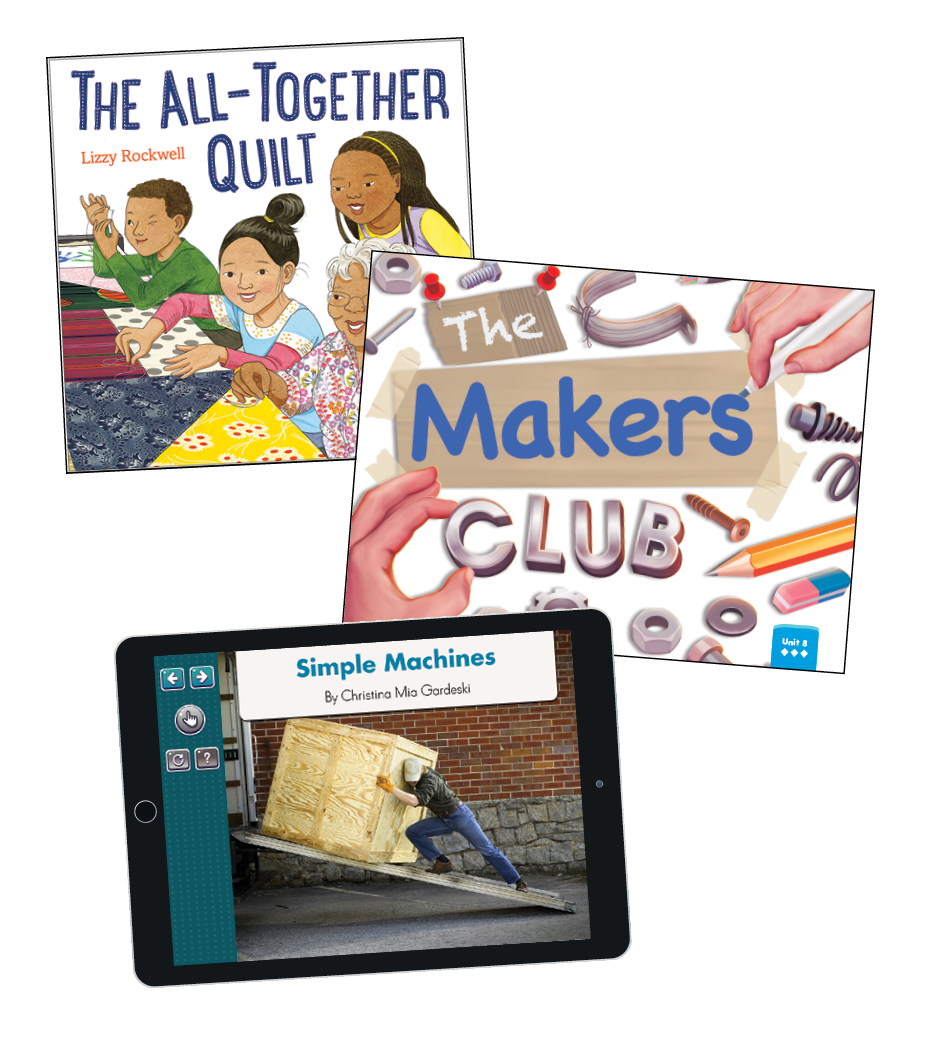
Consistent and Comprehensive Lessons in Word Work, Reading, and Writing
Superkids lessons are divided into three strands: Word Work, Reading, and Writing. All lessons within the program are built on this consistent structure to help students progress in their skills from kindergarten through grade 2.
Learn more about Word Work
A thorough, systematic, and explicit introduction to foundational skills in kindergarten sets the stage for rigorous Word Work instruction in grades 1–2, ensuring students acquire the skills they need to become lifelong readers and writers.

|
||
|---|---|---|
| Grade K | Grade 1 | Grade 2 |
Students learn the letters of the alphabet and one sound for each letter (with an introduction to long vowels later in the year). They apply their new skills to blend letter-sounds to read decodable text and write words and sentences. 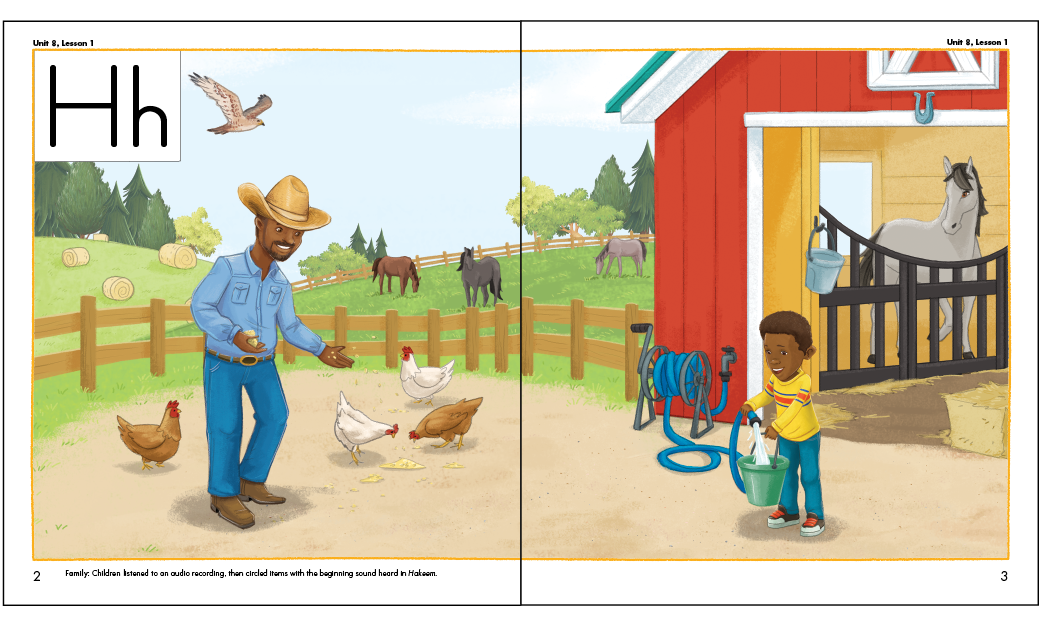 Grade K, Unit 8, Week 1 Skills Book pages |
Students expand their letter-sound knowledge to include consonant digraphs, long vowels, and vowel combinations, using phonetic and structural patterns to decode and encode longer and more complex words. 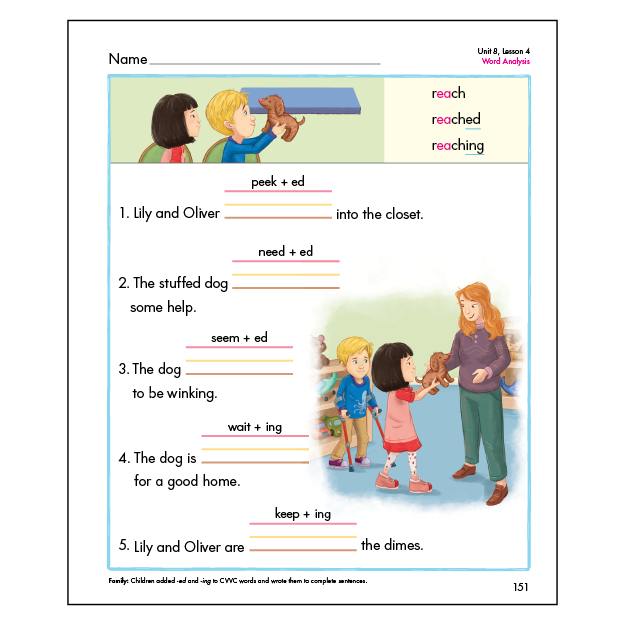 Grade 1, Unit 8 Word Work Skills Book page |
Students build on the sound-spelling patterns and structural skills they developed in first grade, consolidating their understanding of all phonetic elements and applying it in fluent reading of grade-level text. 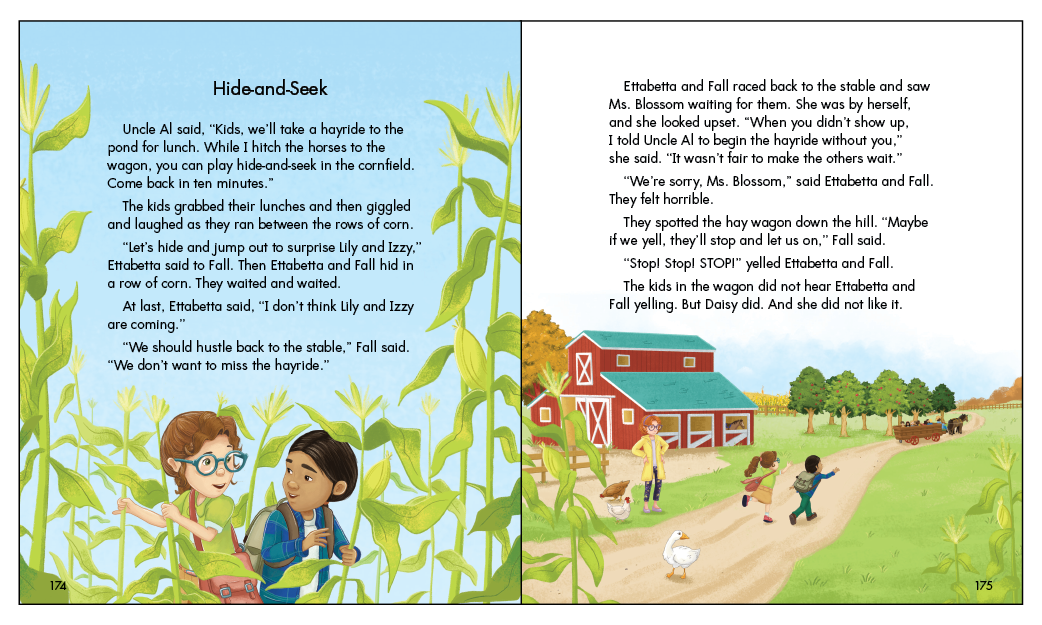 Grade 2, Unit 8 Reader story |

| Grade K |
|---|
|
Students learn the letters of the alphabet and one sound for each letter (with an introduction to long vowels later in the year). They apply their new skills to blend letter-sounds to read decodable text and write words and sentences.  Grade K, Unit 8, Week 1 Skills Book pages |
| Grade 1 |
|---|
|
Students expand their letter-sound knowledge to include consonant digraphs, long vowels, and vowel combinations, using phonetic and structural patterns to decode and encode longer and more complex words.  Grade 1, Unit 8 Word Work Skills Book page |
| Grade 2 |
|---|
|
Students build on the sound-spelling patterns and structural skills they developed in first grade, consolidating their understanding of all phonetic elements and applying it in fluent reading of grade-level text.  Grade 2, Unit 8 Reader story |
Learn more about Reading
In the Reading strand, students gain a sense of pride and accomplishment as they read successfully thanks to the decoding skills they learn in the Word Work strand. In addition to following their favorite characters’ adventures in stories about the Superkids, students read a variety of fun-filled, interesting, and relevant fiction and informational texts.

|
||
|---|---|---|
| Grade K | Grade 1 | Grade 2 |
Students apply their letter-sound knowledge to read decodable texts that build knowledge and enhance their vocabulary and comprehension skills. They discuss what they’ve learned and answer Essential Questions to solidify their knowledge base. As they gradually build automaticity in decoding, students begin to read at an appropriate rate with prosody and expression. 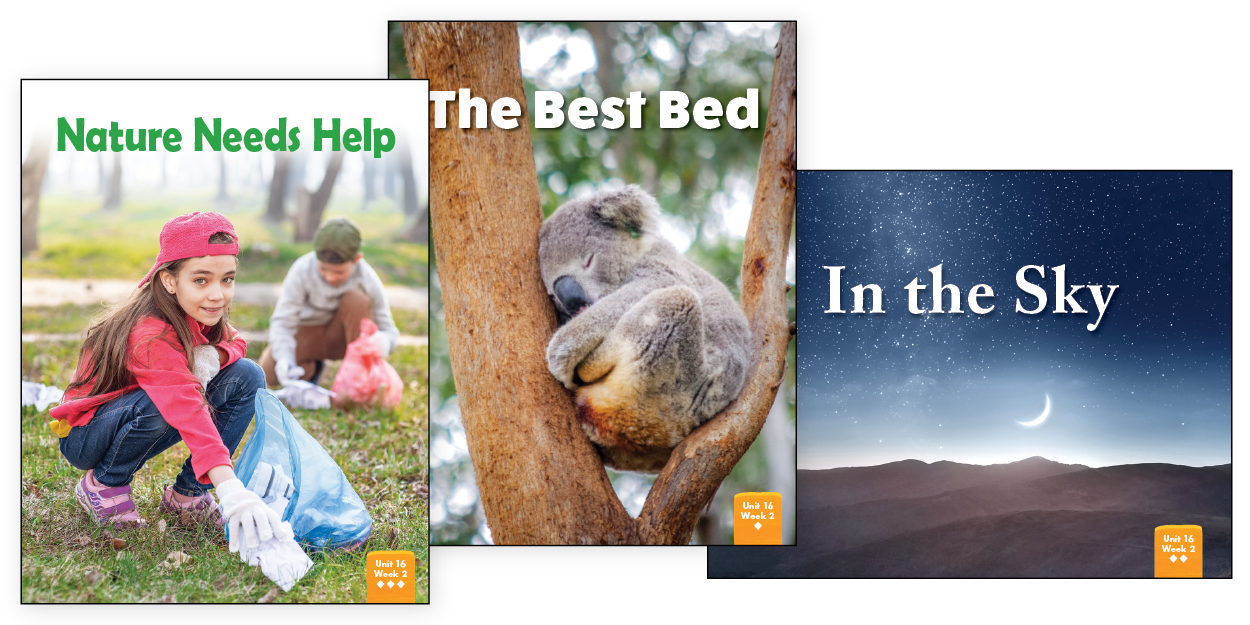 Grade K, Unit 16 Decodable Libraries 1–3 books |
Students use their knowledge of phonetic and structural patterns to decode and encode longer, more difficult words and build their fluency as they read increasingly complex decodable and semi-decodable text. They begin to develop a robust and varied vocabulary and expand their comprehension skills as they answer more advanced essential questions. 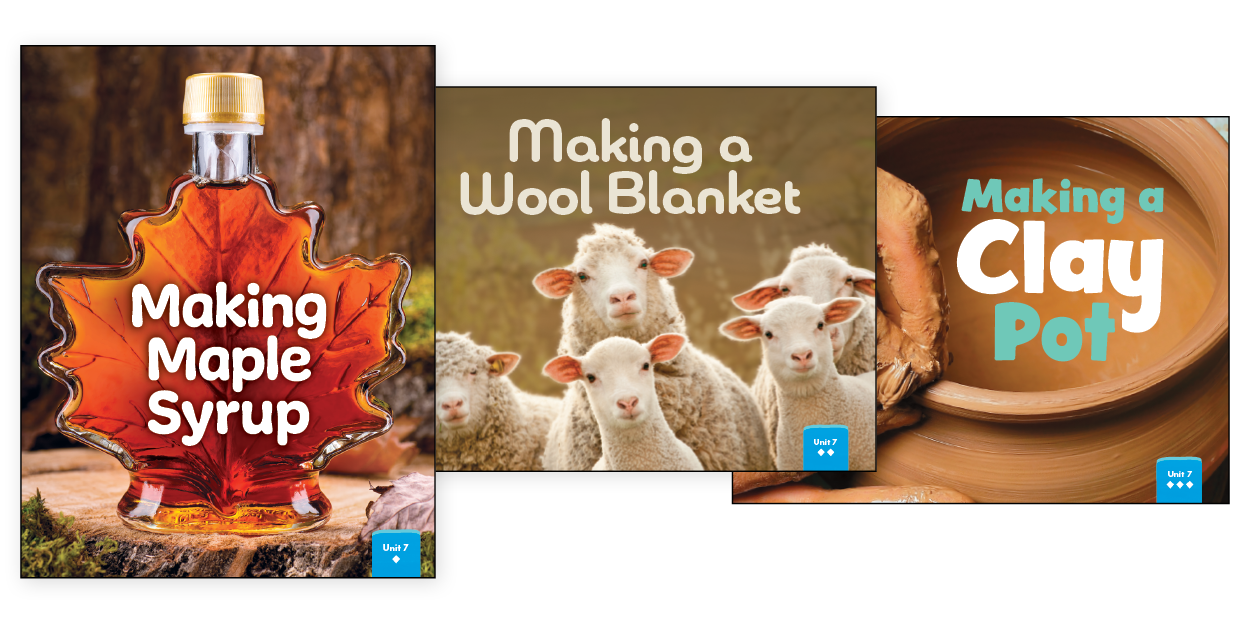 Grade 1, Unit 7 Decodable Libraries 1–3 books |
Students read authentic literary and informational texts that have not been controlled for decodability and apply comprehension skills to longer, more complex text. They are encouraged to ponder sophisticated Essential Questions as they build in-depth knowledge about complex Big Topics. 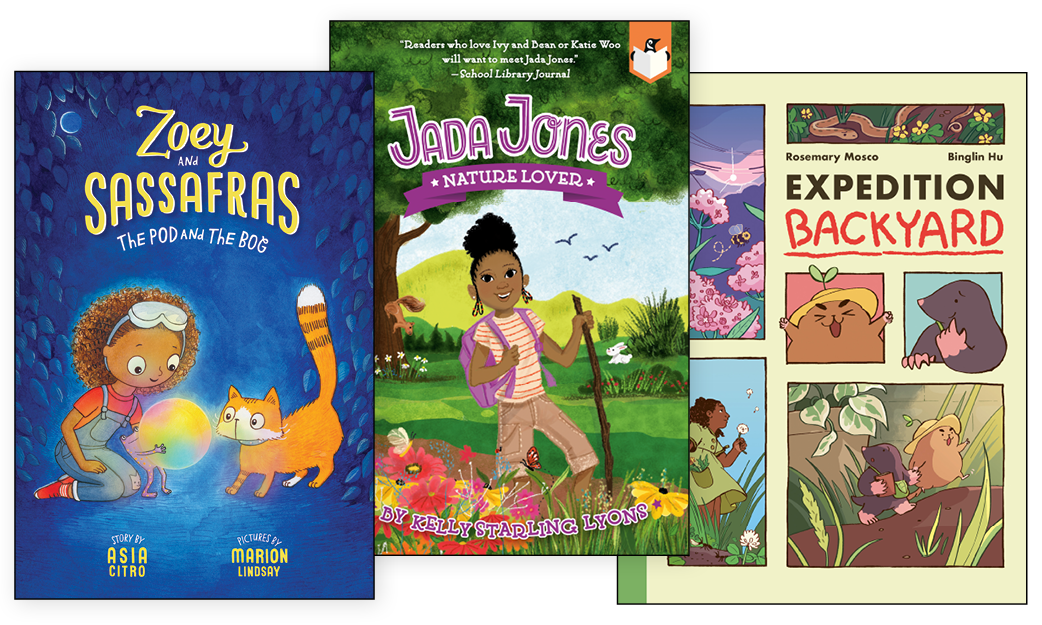 Grade 2, Unit 6 Book Clubs 1–3 books |

| Grade K |
|---|
|
Students apply their letter-sound knowledge to read decodable texts that build knowledge and enhance their vocabulary and comprehension skills. They discuss what they’ve learned and answer Essential Questions to solidify their knowledge base. As they gradually build automaticity in decoding, students begin to read at an appropriate rate with prosody and expression.  Grade K, Unit 16 Decodable Libraries 1–3 books |
| Grade 1 |
|---|
|
Students use their knowledge of phonetic and structural patterns to decode and encode longer, more difficult words and build their fluency as they read increasingly complex decodable and semi-decodable text. They begin to develop a robust and varied vocabulary and expand their comprehension skills as they answer more advanced essential questions.  Grade 1, Unit 7 Decodable Libraries 1–3 books |
| Grade 2 |
|---|
|
Students read authentic literary and informational texts that have not been controlled for decodability and apply comprehension skills to longer, more complex text. They are encouraged to ponder sophisticated Essential Questions as they build in-depth knowledge about complex Big Topics.  Grade 2, Unit 6 Book Clubs 1–3 books |
Learn more about Writing
Students learn to express themselves through daily explicit Writing instruction. Integrating their Word Work skills with the knowledge they have gained through listening to, reading, and discussing texts, students create compositions that increase in complexity as they progress from kindergarten to grade 2.

|
||
|---|---|---|
| Grade K | Grade 1 | Grade 2 |
Students learn letter formation and sentence structure, then begin composing short narrative, opinion, and informative texts. Early in the year, students generate ideas orally or draw to express themselves. Gradually, they add words, phrases, and sentences to support their drawings. 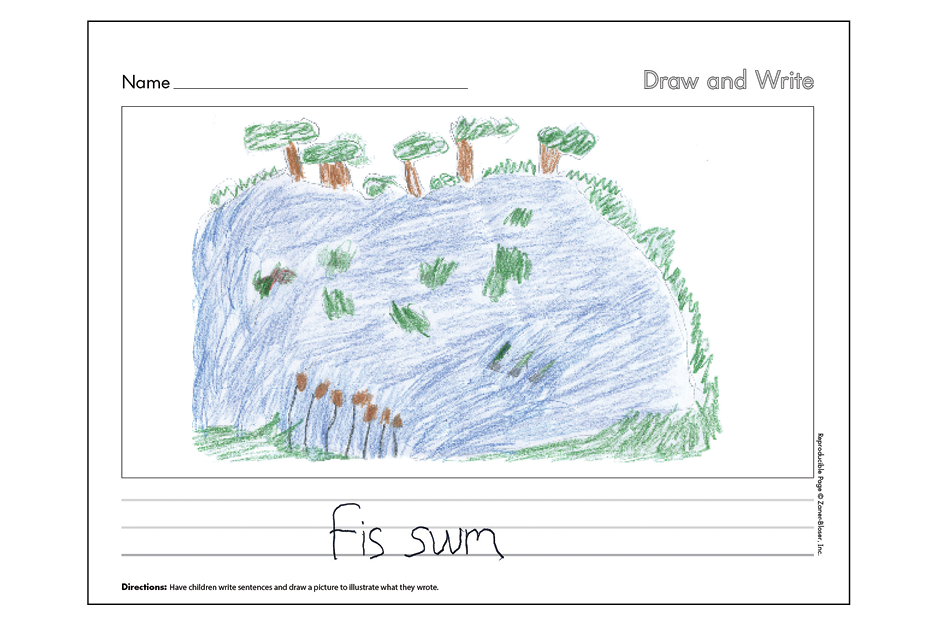 |
Students develop critical skills that help them grow as writers throughout the school year. Units focus on different text types, while lessons teach and have students practice skills related to each text type, the steps of the writing process, sentence structure, and other writing mechanics. 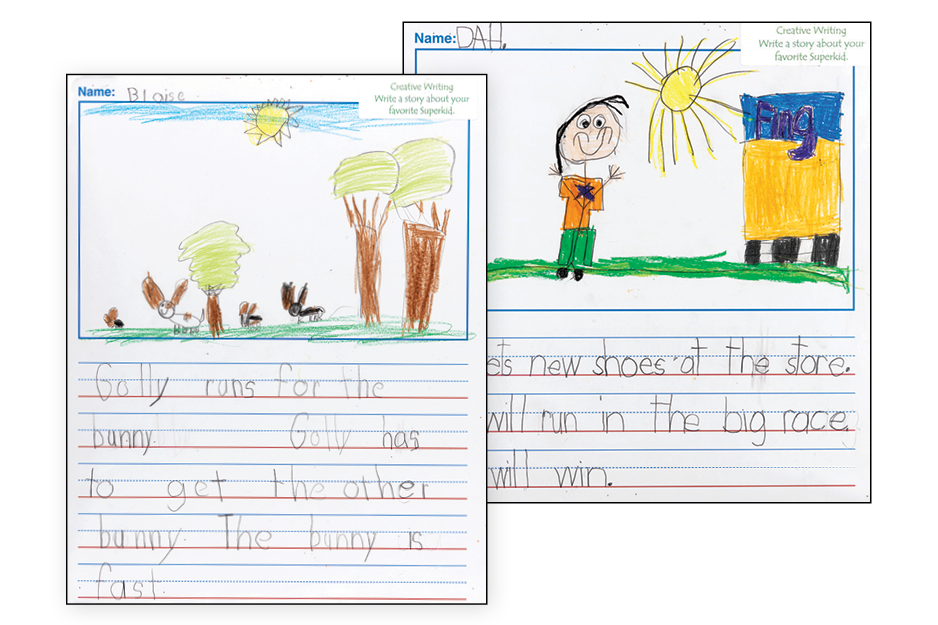 |
Students learn to efficiently express themselves through writing, using the writing process to compose longer, more structured narratives, informational texts, opinion pieces, and more. 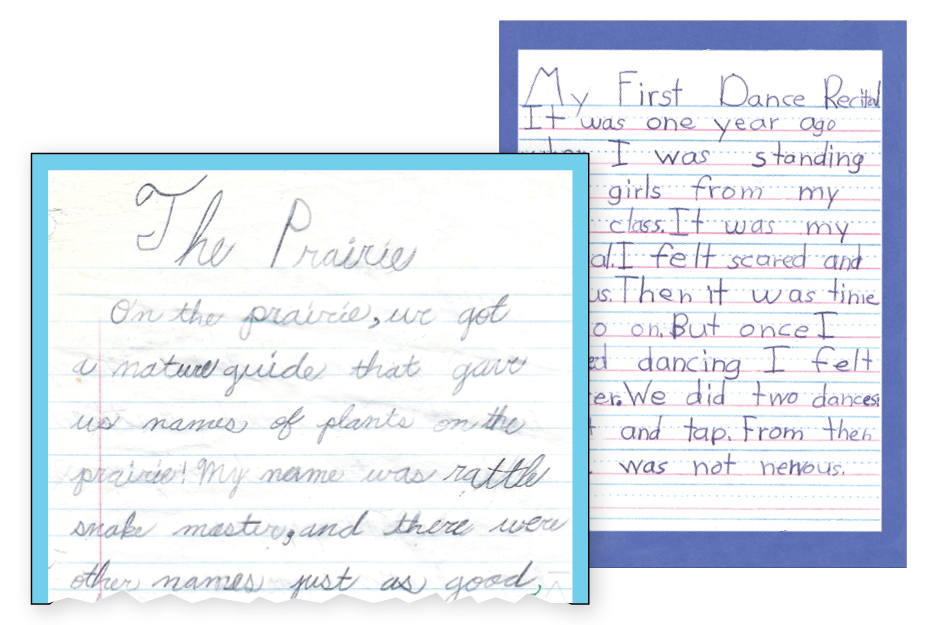 |

| Grade K |
|---|
|
Students learn letter formation and sentence structure, then begin composing short narrative, opinion, and informative texts. Early in the year, students generate ideas orally or draw to express themselves. Gradually, they add words, phrases, and sentences to support their drawings.  |
| Grade 1 |
|---|
|
Students develop critical skills that help them grow as writers throughout the school year. Units focus on different text types, while lessons teach and have students practice skills related to each text type, the steps of the writing process, sentence structure, and other writing mechanics.  |
| Grade 2 |
|---|
|
Students learn to efficiently express themselves through writing, using the writing process to compose longer, more structured narratives, informational texts, opinion pieces, and more.  |
See the Effective Instruction in Superkids Firsthand
Want to see for yourself how the instruction in Superkids works? Contact us to request free samples now!
Contact Zaner-Bloser
